[unable to retrieve full-text content]
Miss Universe interview question has translation for 'Pang-ilan ka sa magkakapatid?' InteraksyonWednesday, February 1, 2023
Tuesday, January 31, 2023
Microsoft Research project helps languages survive — and thrive - Microsoft Stories India - Microsoft - Translation
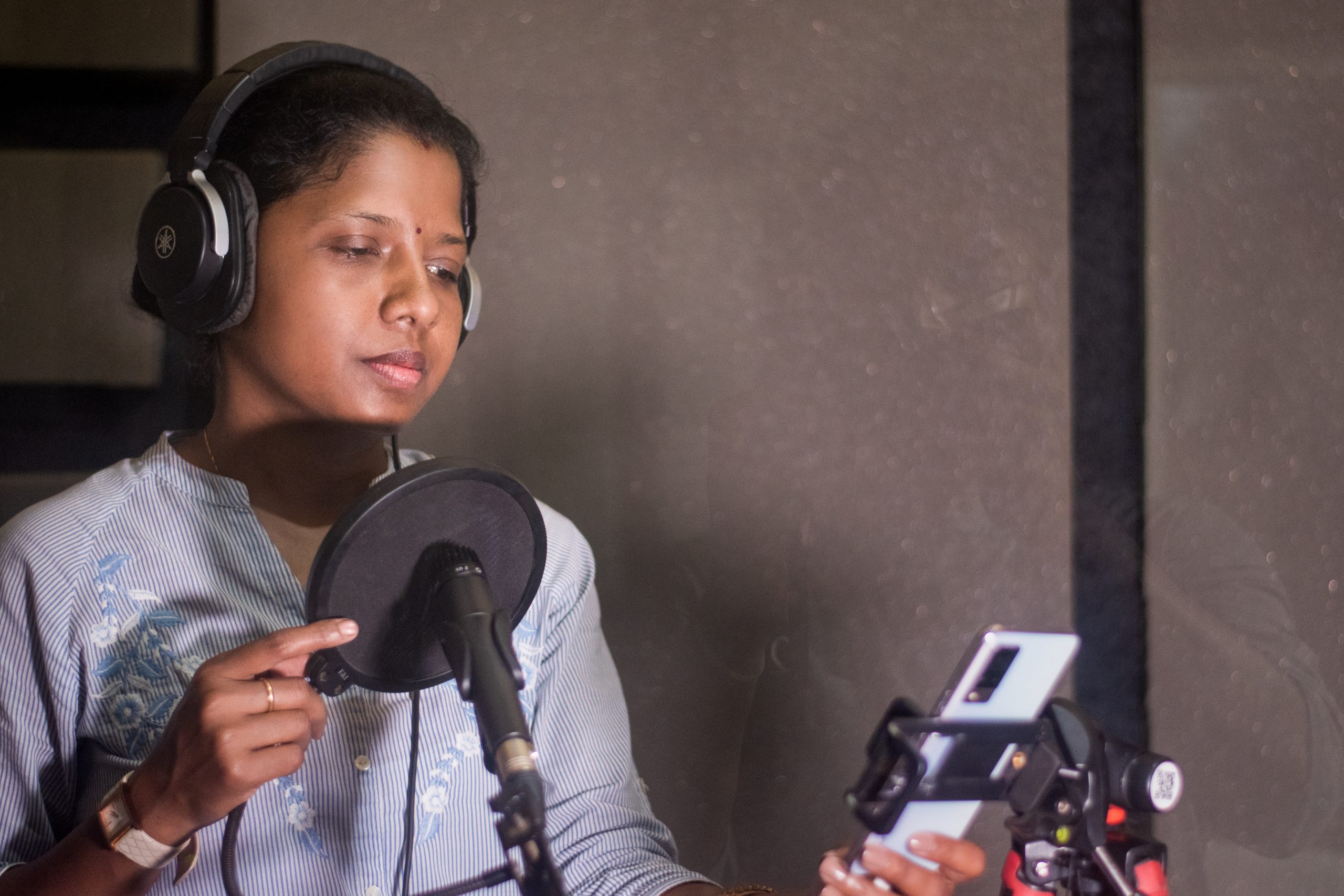
“As a result, the distinction between haves and have-nots became pretty stark,” explains Monojit Choudhury, principal data and applied scientist at Microsoft’s Turing India and Bali’s colleague.
The researchers call languages that do not have resources required to build technology for a digital presence “low-resource languages.”
Under Project ELLORA— Enabling Low Resource Languages — building digital resources has a dual purpose: First, it is a step to preserving a language for posterity; and second, it ensures that users of these languages can participate and interact in the digital world.
Project ELLORA, launched in 2015, began with basics. The first step was to map out what resources were already available, such as printed material like literature and the extent of a digital presence. In a 2020 paper, Bali and her colleagues outlined a six-tier classification, with the top tier representing resource-rich languages like English and Spanish, and the bottom tiers reflecting languages with little-to-no resources.
The work of Project ELLORA is collecting the required resources for these languages and building language models to meet their speakers’ digital needs.
Project ELLORA’s researchers work with the communities to define what this need is and what base technology can help fulfill it. “No language technology can be isolated from the people who are going to use it,” says Bali.
For Mundari, the researchers collaborated with IIT Kharagpur in 2018 and sponsored a study to find what the community needs to keep the language alive.
What started off as a simple vocabulary game for school children to get them to learn the language soon morphed into sophisticated technology projects.
MSR researchers are currently working on a Hindi-to-Mundari text translation as well as a speech recognition model that will provide the community access to more content in Mundari.
A text-to-speech model, funded under the “Forward – Artificial Intelligence for all” initiative by the Deutsche Gesellschaft für Internationale Zusammenarbeit (GIZ) on behalf of the German Ministry for Economic Cooperation and Development, is also in the works.
But creating language translation models for a language that doesn’t have any significant digital content to train machine learning models is no easy feat.
The team, led by professors of IIT Kharagpur, initially worked with members of the community to have them manually translate sentences from Hindi to Mundari.
To speed the translation, MSR researchers developed new technology called Interneural Machine Translation (INMT), which helps predict the next word when someone is translating between languages.
“It (INMT) allows for humans to translate from one language to another more effectively. If I’m translating from Hindi to Mundari, when I start typing in Mundari, it gives me predictive suggestions in Mundari itself. It’s like the predictive text you get in smartphone keyboards, except that it does it across two languages,” Bali explains.
To build the dataset for text to speech, they collaborated with Karya, which started off as a research project by Vivek Seshadri, a principal researcher at MSR. Karya is a digital work platform for capturing, labeling and annotating data for building machine learning and AI models.
The team identified a male Mundari speaker and Dr. Munda as the female speaker, who were given the translated sentences to record. They recorded the sentences on the Karya app on Android smartphones.
The recordings, along with the corresponding text, are securely uploaded to the cloud and are accessible for researchers to train text to speech models.
“The idea is that between Microsoft Research, Karya and IIT Kharagpur, we will have data for machine translation, speech recognition and text-to-speech synthesis, so that all these three technologies can be built for Mundari,” elaborates Bali.
These connections between language and technology are basic building blocks that eventually could enable sophisticated systems like translation services on government websites or streaming platforms. These systems are already a reality for the language you are reading this article in.
Beauty company claims dictionary's definition of beauty is ageist, sexist - Fox News - Dictionary
One of the world's largest beauty companies, Coty, accused dictionaries of "ageism" and "sexism" in their definitions of beauty in a new campaign highlighting their effort to "undefine beauty."
Coty, which owns brands such as Covergirl and Kylie Cosmetics, started a petition on Change.org that called for dictionaries to change the "outdated" definition of beauty.
"The criteria in the definition in the major English Dictionaries - or more specifically the examples used to illustrate it, were born in a different time and have not aged well. The implicit ageism and sexism in the current definition are anachronistic," Coty's online petition said.
Coty cited two examples used to explain the definition of beauty.
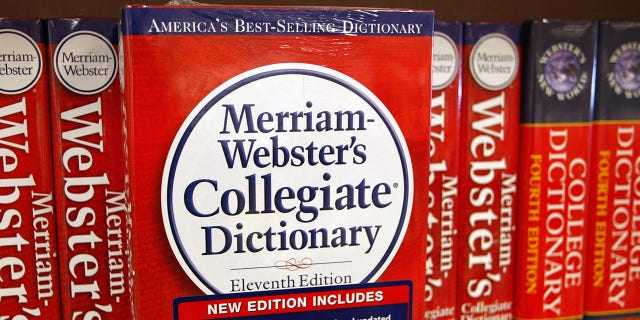
A Merriam-Webster's Collegiate Dictionary is displayed in a bookstore November 10, 2003 in Niles, Illinois. ((Photo by Tim Boyle/Getty Images))
OXFORD DICTIONARY UNVEILS 2022 WORD OF THE YEAR: ‘GOBLIN MODE’
"I was struck by her beauty," one example read. Another said, "she was considered a great beauty in her youth."
"This cause to change the definition of beauty acknowledges all those who celebrate and express their own visions of beauty every day, and validates those who have felt excluded by restrictive definitions of beauty," Coty wrote in their online petition.
The petition has garnered over 1,300 signatures.
Dictionary.com revealed their 2022 word of the year to be "woman" in December.
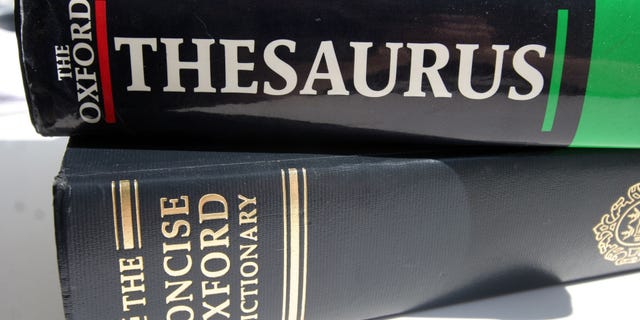
A generic picture of an English dictionary and a thesaurus. REUTERS/Catherine Benson ( OFFPO REUTERS/Catherine Benson)
DICTIONARY.COM ADDS HUNDREDS OF NEW ENTRIES FOR 2021, INCLUDING A FEW VERY CROMULENT WORDS
Coty CEO Sue Nabi wrote in a letter to dictionary publishers that it was time to update their definition.
"Seen through the lens of today’s society and values, the definition of beauty hasn’t aged well. Of course, not all people are impacted by, or feel excluded by these definitions," Nabi said. "But the implicit ageism and sexism in the examples were born in a different time. We believe it’s time to bridge the gap - time to bring the definition to where society is today. By changing the definition, if more people feel included – feel beautiful – there will be a ripple effect which touches us all."
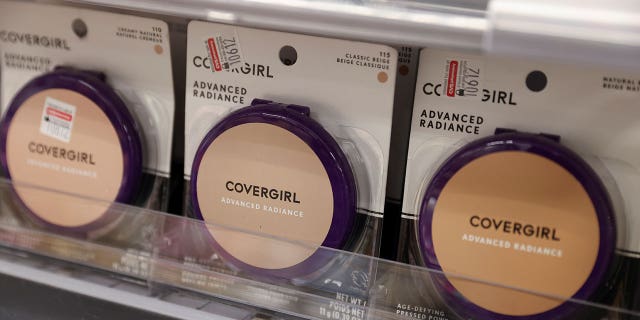
Covergirl makeup, owned by Coty Inc., is seen for sale in Manhattan, New York City, U.S., February 7, 2022. REUTERS/Andrew Kelly (REUTERS/Andrew Kelly)
CLICK HERE TO GET THE FOX NEWS APP
"At Coty, we believe that no one can control or dictate what is, or is not, beautiful," Nabi added.
The Cambridge Dictionary adjusted their definitions of "man" and "woman" in December 2022.
Cambridge Dictionary now define a "woman" as, "an adult who lives and identifies as female though they may have been said to have a different sex at birth."
They similarly define a "man" as, "an adult who lives and identifies as male though they may have been said to have a different sex at birth."
Hanna Panreck is an associate editor at Fox News.
Beauty company claims dictionary's definition of beauty is ageist, sexist - msnNOW - Dictionary
One of the world's largest beauty companies, Coty, accused dictionaries of "ageism" and "sexism" in their definitions of beauty in a new campaign highlighting their effort to "undefine beauty."
Coty, which owns brands such as Covergirl and Kylie Cosmetics, started a petition on Change.org that called for dictionaries to change the "outdated" definition of beauty.
"The criteria in the definition in the major English Dictionaries - or more specifically the examples used to illustrate it, were born in a different time and have not aged well. The implicit ageism and sexism in the current definition are anachronistic," Coty's online petition said.
Coty cited two examples used to explain the definition of beauty.
 © Provided by FOX News A Merriam-Webster's Collegiate Dictionary is displayed in a bookstore November 10, 2003 in Niles, Illinois. (Photo by Tim Boyle/Getty Images)
© Provided by FOX News A Merriam-Webster's Collegiate Dictionary is displayed in a bookstore November 10, 2003 in Niles, Illinois. (Photo by Tim Boyle/Getty Images)
OXFORD DICTIONARY UNVEILS 2022 WORD OF THE YEAR: ‘GOBLIN MODE’
"I was struck by her beauty," one example read. Another said, "she was considered a great beauty in her youth."
READ ON THE FOX NEWS APP
"This cause to change the definition of beauty acknowledges all those who celebrate and express their own visions of beauty every day, and validates those who have felt excluded by restrictive definitions of beauty," Coty wrote in their online petition.
The petition has garnered over 1,300 signatures.
Dictionary.com revealed their 2022 word of the year to be "woman" in December.
 © OFFPO REUTERS/Catherine Benson A generic picture of an English dictionary and a thesaurus. REUTERS/Catherine Benson OFFPO REUTERS/Catherine Benson
© OFFPO REUTERS/Catherine Benson A generic picture of an English dictionary and a thesaurus. REUTERS/Catherine Benson OFFPO REUTERS/Catherine Benson
DICTIONARY.COM ADDS HUNDREDS OF NEW ENTRIES FOR 2021, INCLUDING A FEW VERY CROMULENT WORDS
Coty CEO Sue Nabi wrote in a letter to dictionary publishers that it was time to update their definition.
"Seen through the lens of today’s society and values, the definition of beauty hasn’t aged well. Of course, not all people are impacted by, or feel excluded by these definitions," Nabi said. "But the implicit ageism and sexism in the examples were born in a different time. We believe it’s time to bridge the gap - time to bring the definition to where society is today. By changing the definition, if more people feel included – feel beautiful – there will be a ripple effect which touches us all."
 © REUTERS/Andrew Kelly Covergirl makeup, owned by Coty Inc., is seen for sale in Manhattan, New York City, U.S., February 7, 2022. REUTERS/Andrew Kelly REUTERS/Andrew Kelly
© REUTERS/Andrew Kelly Covergirl makeup, owned by Coty Inc., is seen for sale in Manhattan, New York City, U.S., February 7, 2022. REUTERS/Andrew Kelly REUTERS/Andrew Kelly
"At Coty, we believe that no one can control or dictate what is, or is not, beautiful," Nabi added.
The Cambridge Dictionary adjusted their definitions of "man" and "woman" in December 2022.
Cambridge Dictionary now define a "woman" as, "an adult who lives and identifies as female though they may have been said to have a different sex at birth."
They similarly define a "man" as, "an adult who lives and identifies as male though they may have been said to have a different sex at birth."
Skype Linux App Gets Colour Options, Realtime AI Voice Translation - OMG! Ubuntu! - Translation
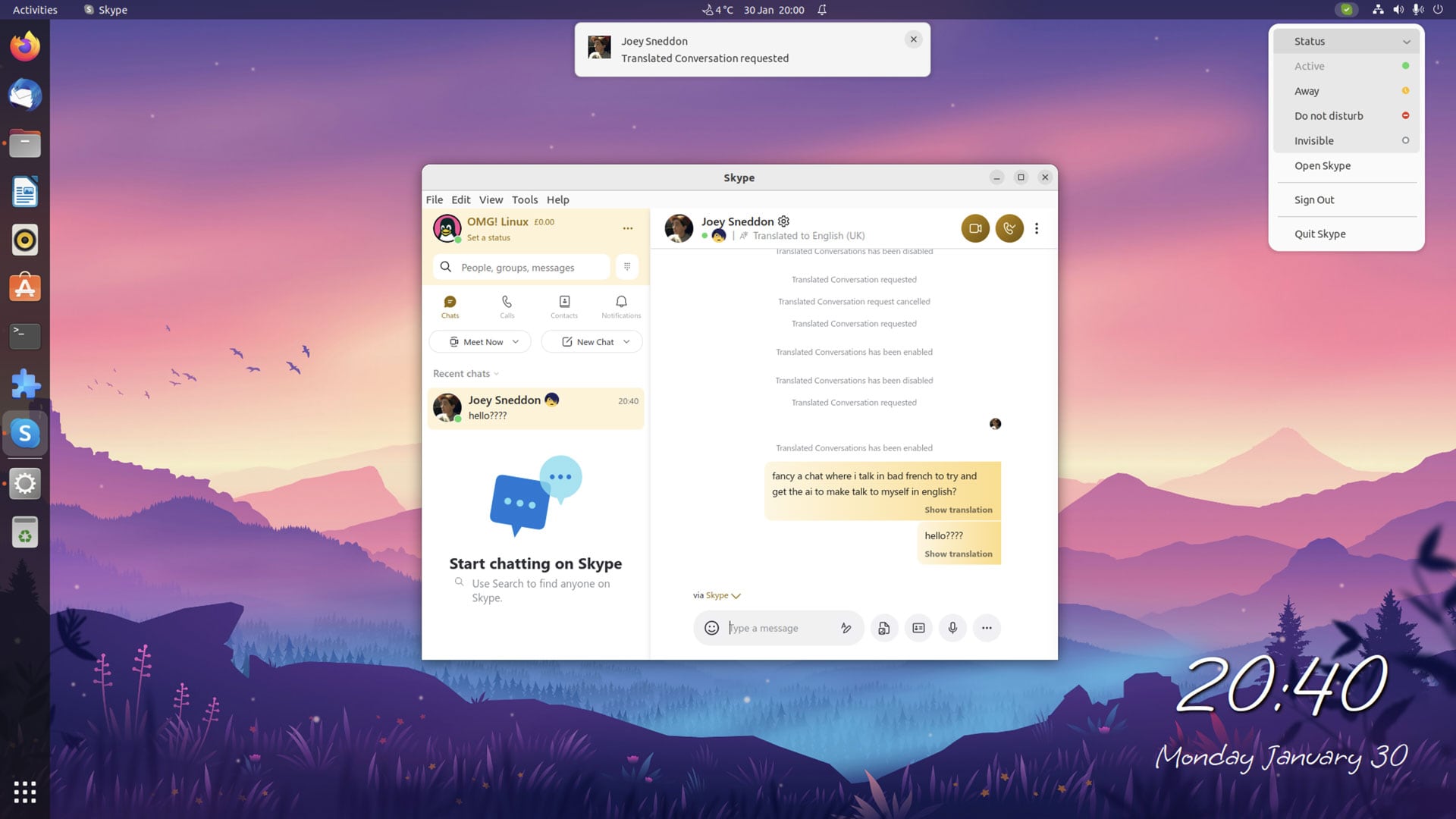
Anyone out there still using Skype?
Thought not 😉, but Microsoft just dropped a big feature update to the Skype desktop and web apps that will undoubtably be of interest to those who stuck with this icon of voice and video chat scene (we called it VoIP back in my day, get off my lawn, grumble grumble, etc).
First up: you can now customise Skype by picking from a small set of pastel hues. Similar accents were added to Skype’s iOS and Android apps recently. Alas, as the Skype app doesn’t look native on Linux I find these colour choices don’t make quite the same impact they do on other systems — but hey: better than nothing.
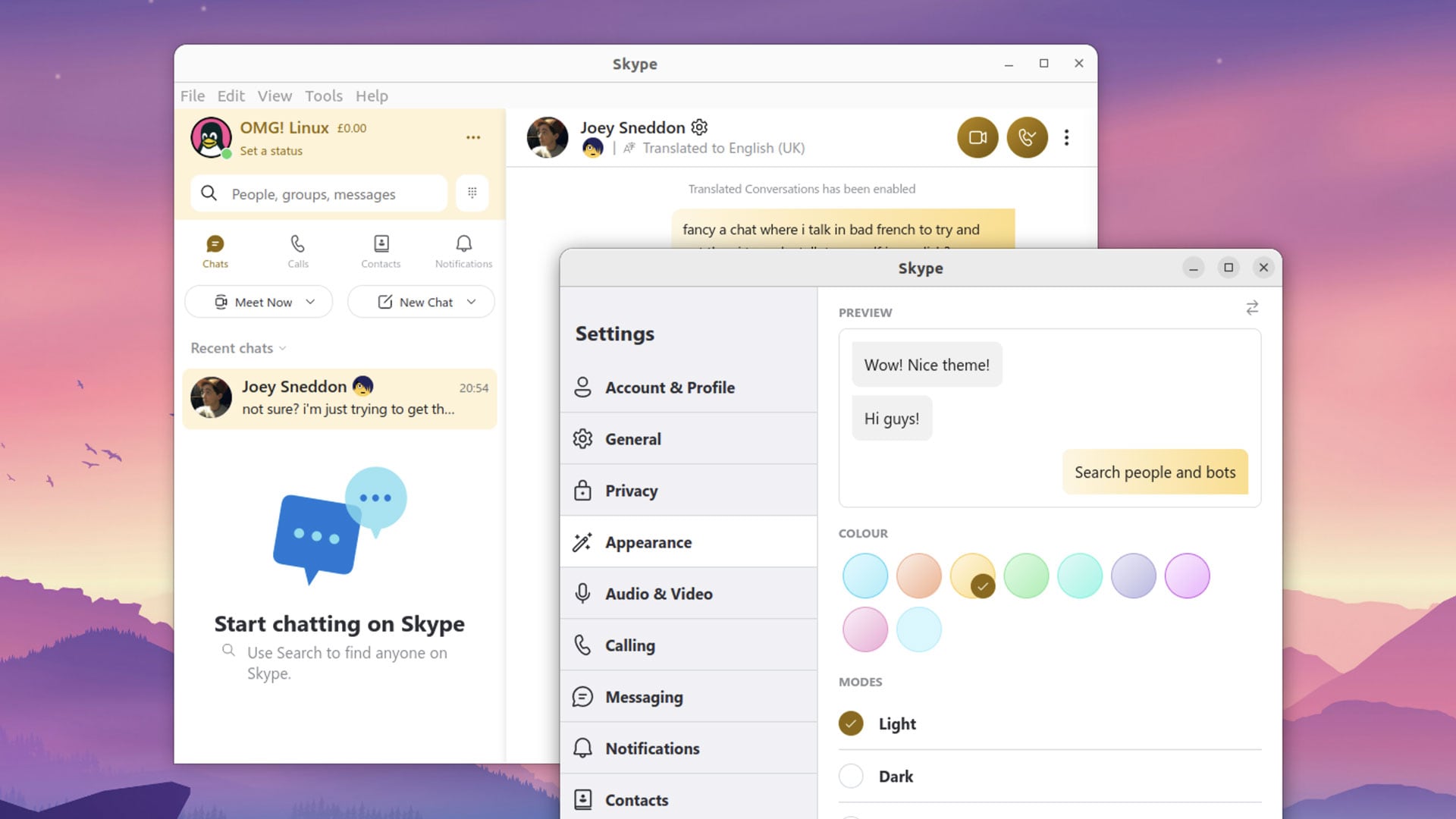
Secondly, and perhaps more interestingly, Skype (version 8.93) features Microsoft’s creepy/cool voice “TruVoice” translation feature. On a purely technical level it’s pretty mind-blowing. Apple and Google have demoed similar things before, but it’ll arguably get more use here, in an app of this kind.
The feature “…uses AI to automatically detect the languages being spoken during a video call and translate them in real time” (the cool part). But it also has a natural language option that uses AI to mimic your voice in real-time, based on what you say (the creepy part).
Microsoft shared this video back in December to demonstrate the feature in more detail:
Lest anyone be worried, Skype’s voice translation feature is NOT enabled by default. To make use of it you have to send a translation request to each contact individually, and it only works if they accept. Around 42 languages are supported by the feature (which is impressive) but you may want to read over the privacy policy before using it.
Other changes in this update to Skype include a set of miscellaneous settings tweaks, bug fixes, and the ability to manage Caller ID from within the Skype app itself.
Download Skype for the Windows, macOS, and Linux from the Skype website. Linux installers are provided as RPM or DEB, but the app is also available from Canonical’s Snap Store.
- (via: Neowin)
Home / News / Skype Linux App Gets Colour Options, Realtime AI Voice Translation